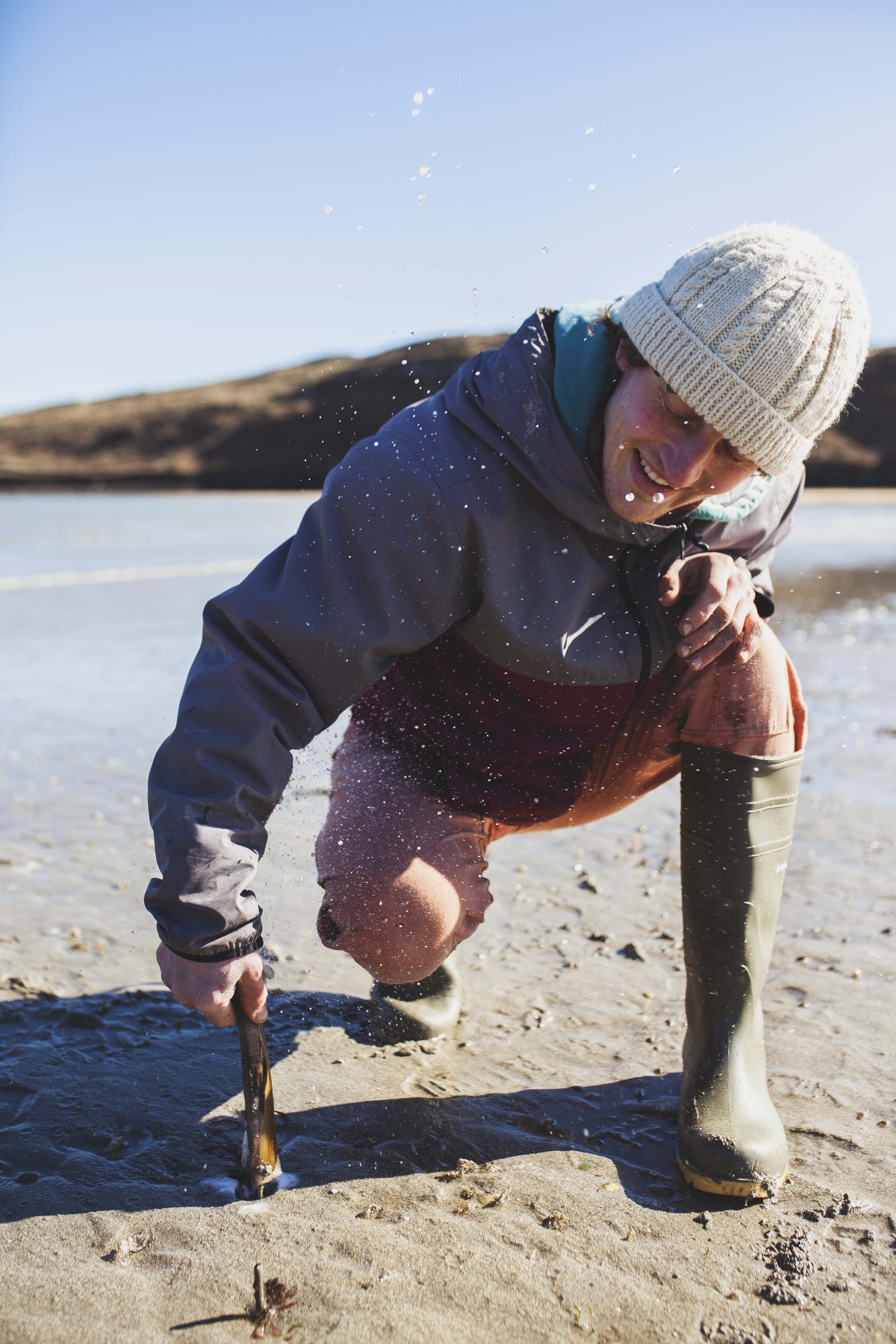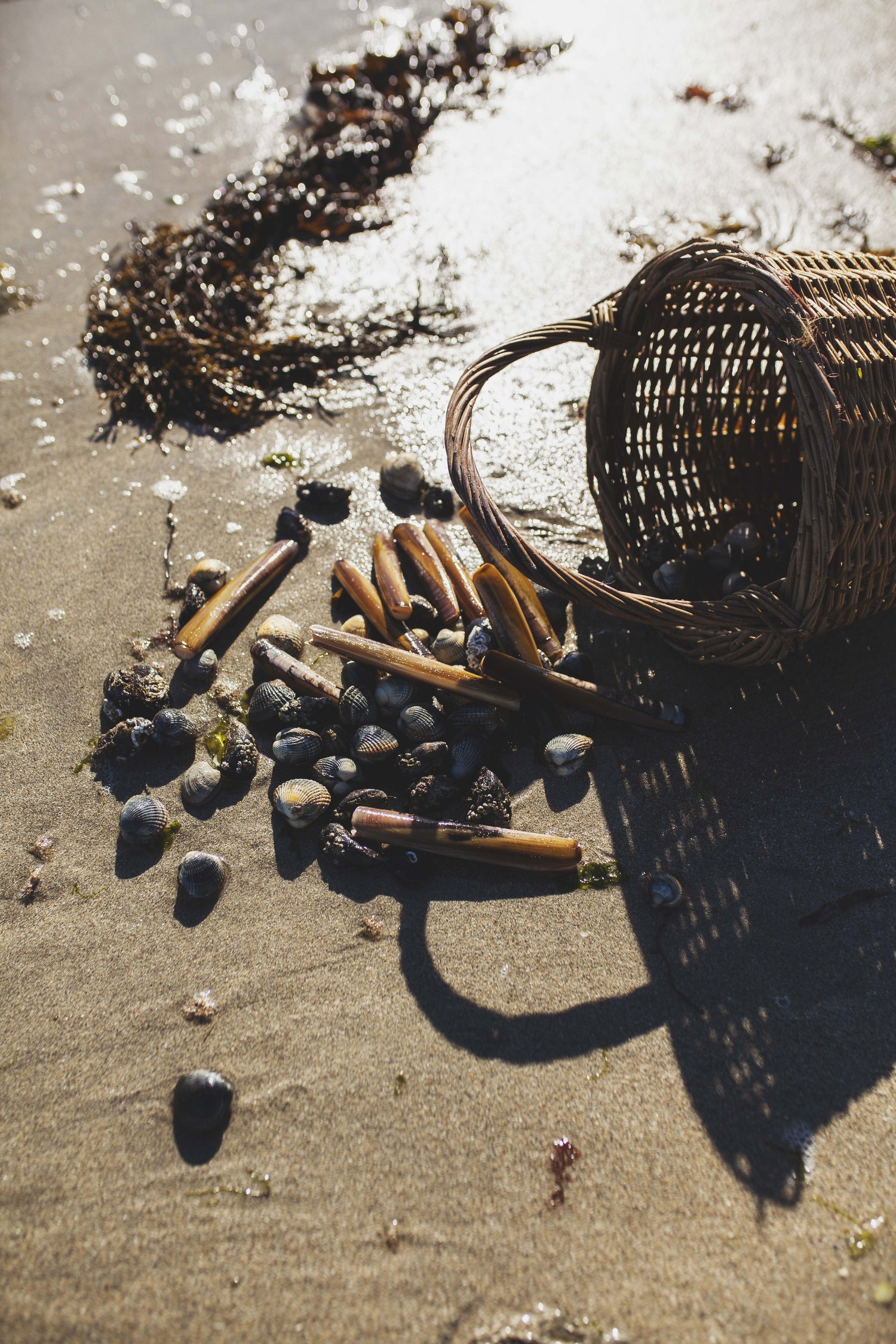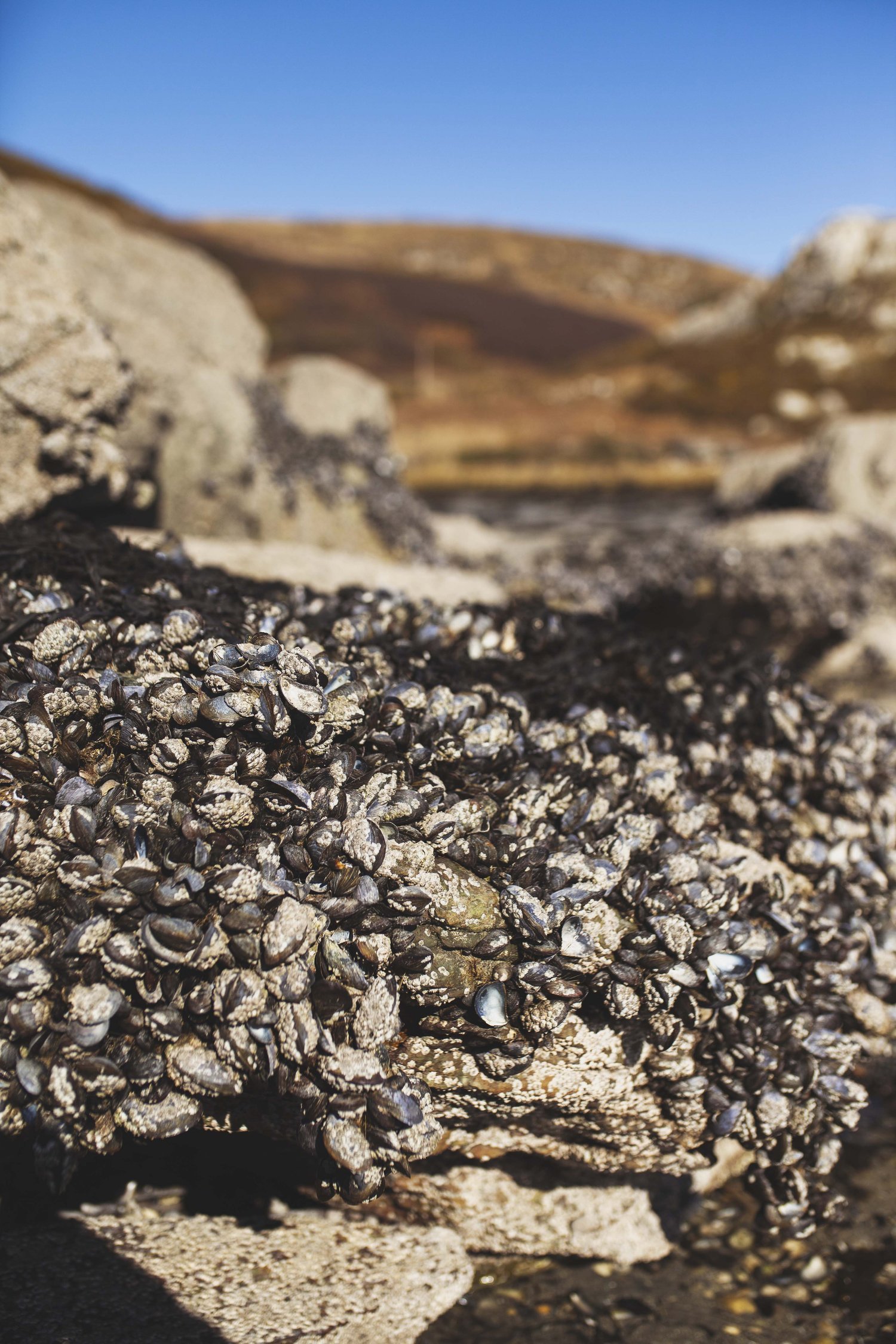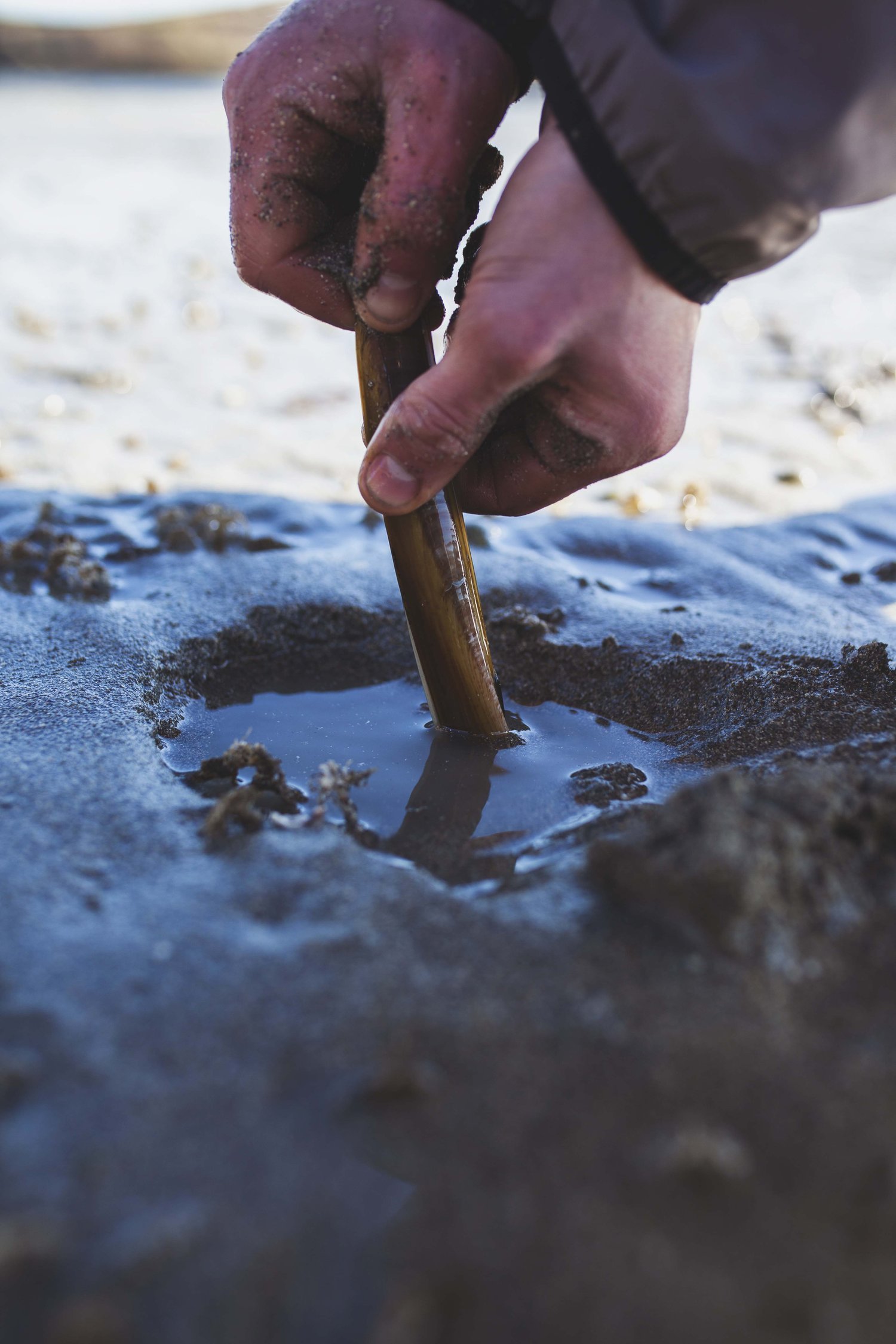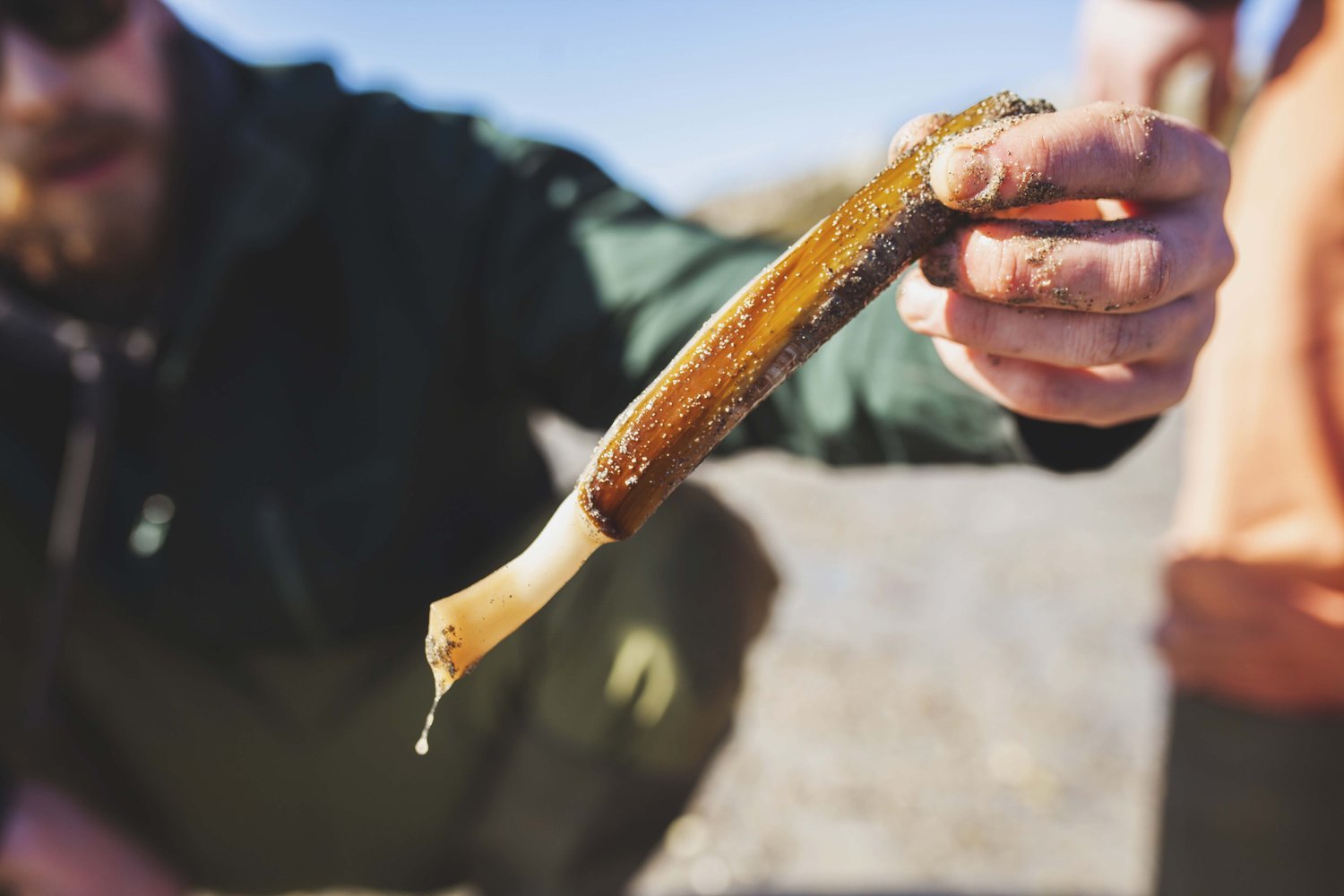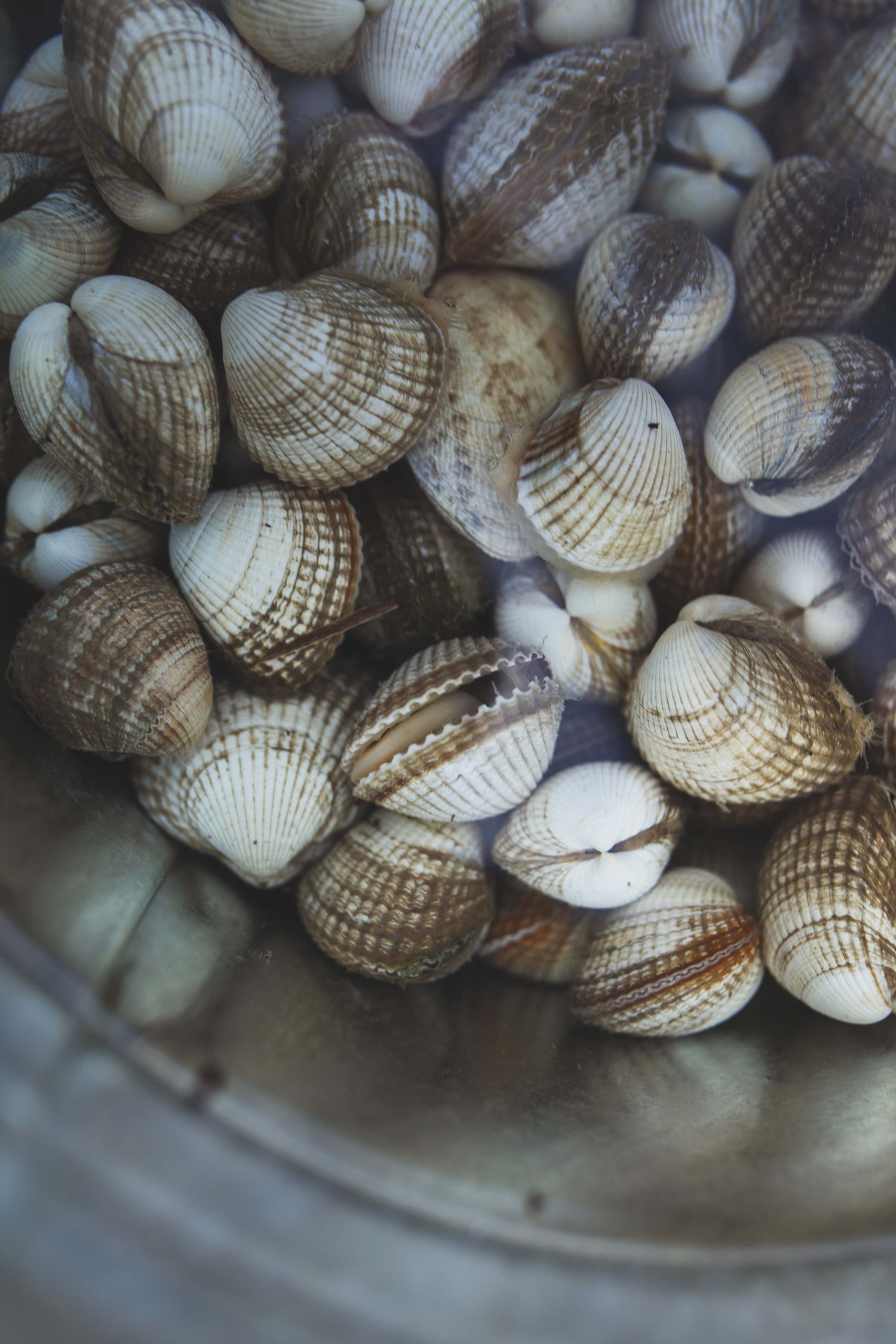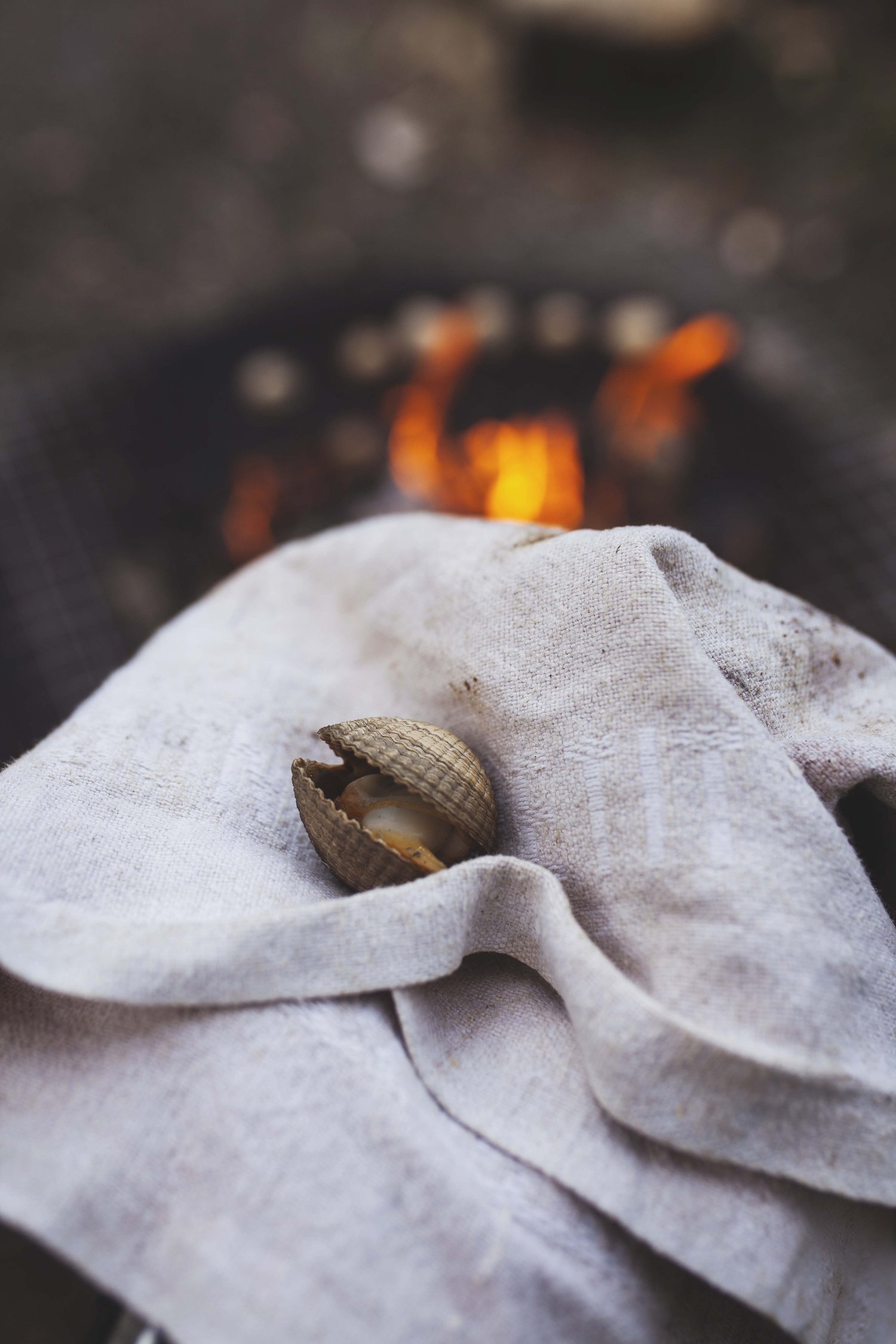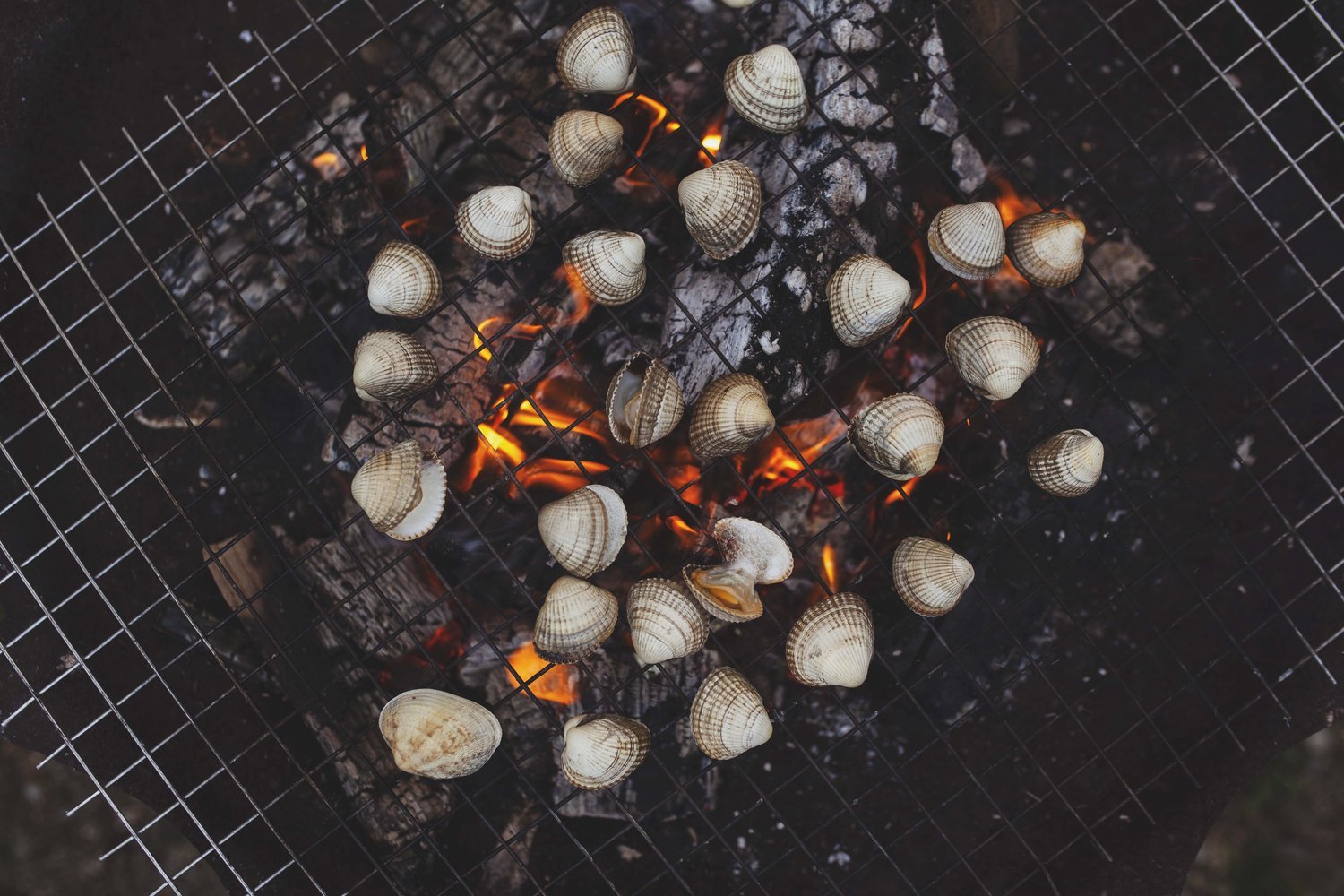WORKSHOP: Foods from the Foreshore
TRADITIONS OF THE SEA
FORAGE, GATHER AND COOK WILD EDIBLES OF THE SEA
Relying on your given landscape for food offers an invaluable connection to it. One of the most important lessons we are given by gathering wild food this way, is that there are certain windows of time which present themselves to us in nature which we must respond to if we are to be successful in finding food.
When the weather is good and the tides are strong, this is when we must drop everything and visit the foreshore to seek the treasures of the indomitable tide.
This is a day to rediscover the entirely passive, traditional techniques of harvesting as you forage for and gather shellfish, crustacea, bivalves and wild greens from the pristine waters of West Cork, and eat them to traditional recipes on the beach or in the Booley. These are skills that once learned, stay with you for life.
WHO IS THIS FOR?
This outing is for anyone looking to nurture their inherent ability to feed themselves from coastal and estuarine areas. Adults and supervised children are welcome.
The goal of the day is to learn about the following:
How to respect the danger and beauty of tidal waters
How to taste the shellfish in their raw state
How to identify and successfully harvest cockles, mussels and razor clams
Old ways of eating and considering wild food
How to prepare a fire outside and cook the bivalves traditionally
How to preserve seafood in jars using fat, salt and acidity for home use
How to harvest other wild sea greens
How to cook it all on the fire
Expect to find: razor clams, cockles, mussels, sea beet, sandwort, pepper dulse, carragheen moss, brown shrimp, prawns, rock and marsh samphire, shore crabs, and many more!
The point of this day is to enable you to turn the coastal landscape into a source of food.
THE SHAPE OF THE DAY
MEET AT THE BEACH - 10:00 (The itinerary of the day will be based around low tide)
We gather together at the designated spot for coffee and second breakfast, taking stock of the beautiful cockling beach we are about to explore. We learn about the cycles of nature and the traditions of gathering cockles in this particular habitat.
GEAR UP
These days we can prevent ourselves from exploring or foraging by thinking we do not have the right tools with us. Too much reliance on specific equipment can act as a barrier in achieving the end goal of finding food. Following our “No Recipe” approach to absorbing traditional techniques, we discuss what available tools could be used for a successful outing, along with ones that work perfectly for the job which we all have at home, to awaken and nurture your inherent ability to find your own food.
HEAD OUT
We walk the inter-tidal zone identifying areas for successful cockling, as well as reaching the wild mussel beds. These are long established patches of beautiful wild mussels, whose sandy habitat means they often contain pearls. We identify the tell-tale keyhole mark of the cunning razor-clam, and learn to use salt to coax them from their sandy holes.
WILD GREENS
Once we have enough for each person to enjoy a full meal of cockles and mussels, we head to a nearby beach to find other wild edibles from the seashore like sea-beet, sea kale and pepper dulse.
LUNCH PREP
Knowing how to clean and prepare the bivalves is important, as we have become disconnected from this delicious and abundant wild food to the point of fearing it. Reconnecting with these creatures this way helps us regain our trust in our own ability to feed ourselves.
LUNCH / SUPPER (Time and tide depending)
The best way to eat these delicious wild creatures is by going back to basics. We can taste them raw, as a cockle straight from the sea is one of the sweetest things to eat. Then over a simple fire is best, watching them open in front of you is a brilliant way to understand when they are cooked. Eaten with pepper dulse butter, homemade bread baked on the fire and paired with natural wine or good old stout, this is one of the best ways to become the landscape you have just foraged through its eating.
PRESERVATION
We will also look at the traditional ways of preserving any excess cockles and mussels, drawing from Irish, Welsh, Cornish, English and Spanish methods, including the use of oilve oil, beef dripping, fermented wild garlic and vinegar, so you can take home a jarred memory of the day!
HOME
End of the day, off to your next adventure!


